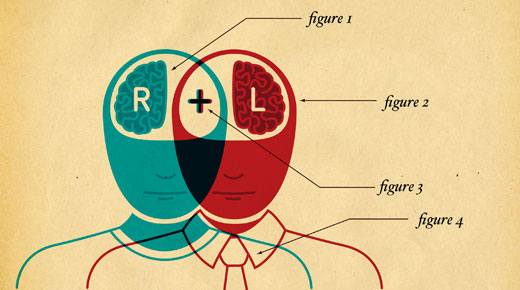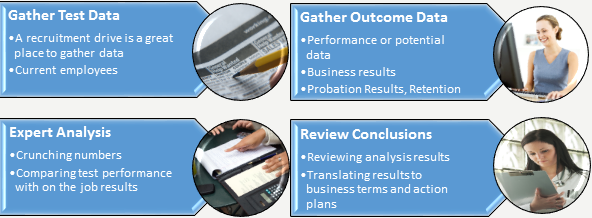‘Datafication’ is increasingly helping HR apply the same rigour to human potential as an organisation’s other assets. Rather than using subjective measures to select people into roles, determine talent gaps or identify and develop high potential employees, the best organisations are turning to scientifically-proven and objective psychometric assessment tools to help them meet their strategic goals.
A recent study of over one thousand HR professionals from companies throughout the world showed a significant proportion of businesses are using psychometric tests as part of the pre-hire process. For example, 62% are using personality assessments.*

Indicators organisations look to when determining validity of an assessment:
1. Quality of hire
2. Productivity
3. Retention / Staff turnover
4. Process efficiency
5. Financial metrics
6. Training effectiveness/cost
7. Legal compliance
8. Performance ratings
9. Employer brand
Yet, according to a 2014 study (registration required) only 14% of organisations have data to prove the positive business impact of their assessment strategy.
A validity study is key in helping determine the effectiveness of your assessment strategy. You might remember validity from a previous blog article. A buzzword in psychometric assessment, it shows that the tests used go beyond something that looks relevant, ensuring they provide true value. The key questions a well designed validity study can help you answer are:
- Can you be confident that the prediction of a psychometric test is accurate for your situation?
- Can you be confident the investment you are making in pre-hire assessments is providing a worthwhile return?
- Is the test truly enhancing your ability to predict future performance?
Running a validity study: Is it a hassle?
No it is not. Especially, if you compare the potential benefits it can bring to your organization to the efforts it takes from you to run the study. In a nutshell, the process goes like this: The aim of every validity study is to let expert psychologists look into how well your chosen psychometric, or any other, assessment tool is performing. To carry this out, first, data that characterizes the on-the-job performance of candidates who has been previously assessed with the tool in question is gathered. Then, test results are compared to on-the-job results and the link between the two is scientifically demonstrated and translated into real business terms.

So how could a validity study help you?
- It will be created bespoke to your needs and your company.
- A validity study demonstrates the value you will get out of using psychometric tests, proving how they work for your own unique workplace environment.
- This provides you with solid ROI information to support your use of such tests – you won’t just be telling people you use them because others do or because they usually work, but because they work for you.
- The analysis will let you know exactly what to look for in each candidate’s results – to ensure you pick the best people for you.
- With the right data, candidate attributes can even be modeled into your future reports.
- You want more specific predictions about how well someone will meet your competency requirements? Given competency performance data, this is possible.
- Want to know whether someone has the characteristics of a good salesman in your team? If you have appropriate sales data, future sales performance can be predicted for each new candidate.
A validity studies are essential parts of data-driven HR processes, and great tools to prove you are using the right tools to select, develop and retain talent.
Talentsift offers psychometric selection tests and the best online assessment centre solution on the market. Our validity studies are complementary to all our tools, to ensure you make the most effective use of psychometrics. Contact us for more details!
*CEB Global Assessment Trends report 2014
Photo credit: ©opensource.com via Jisc
CC BY-SA